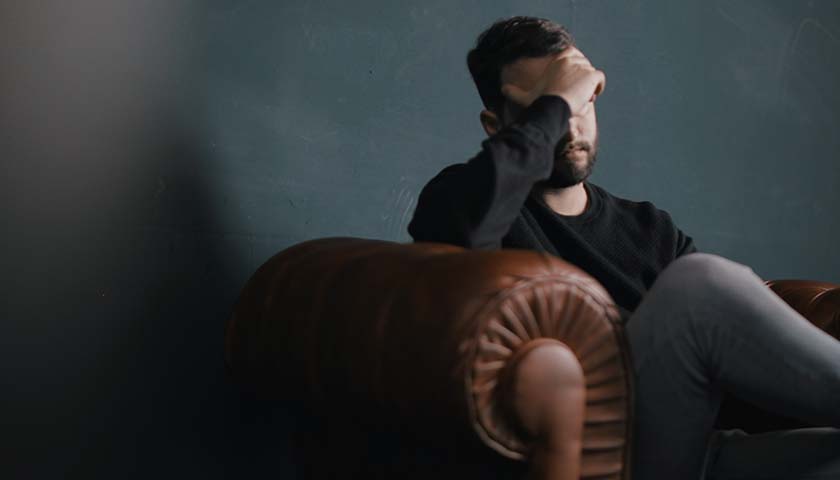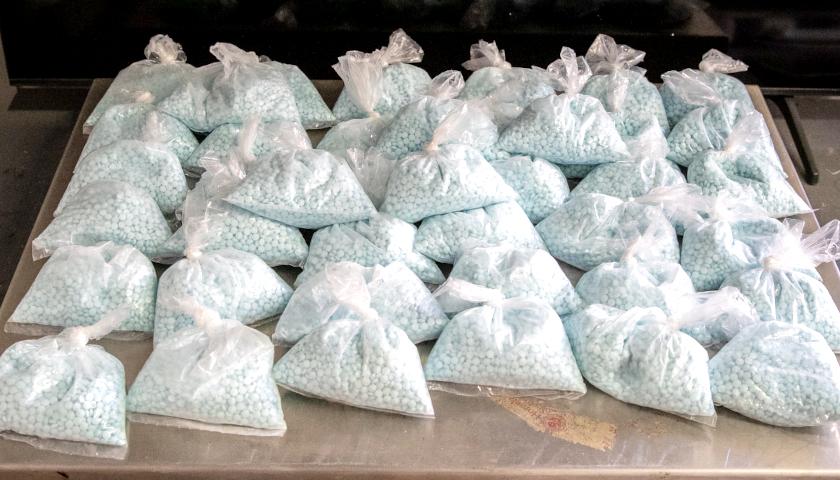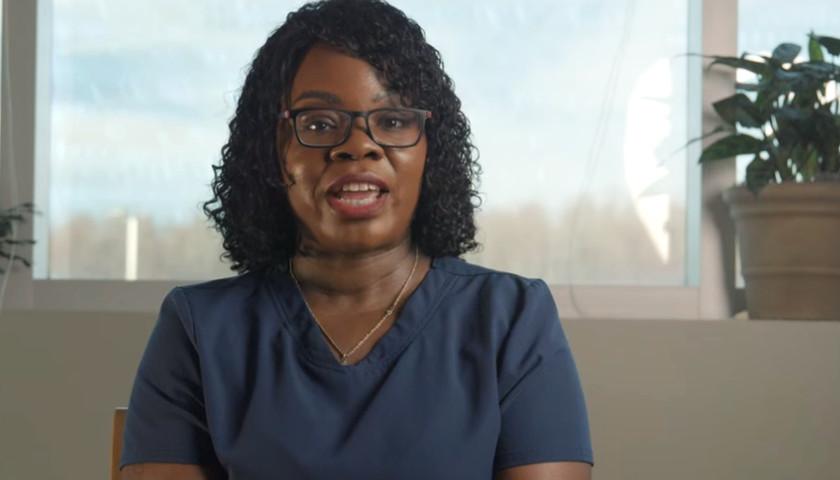During the beginning of COVID-19, hospital inpatient volume and emergency department visits decreased, in part due to people postponing treatment. But the same data showed an increase in the number of patients getting treatment for alcohol, drug use, and related mental disorders, the Virginia Hospital and Healthcare Association (VHHA) reported in April. In a Friday press conference, VHHA Vice President of Data and Analytics David Vaamonde reported that increased treatment for those kinds of disorders continued into the first two quarters of 2021 — one of only two Major Diagnostic Categories (MDCs) that saw growth since the beginning of the pandemic.
“We’re looking at MDCs where volumes actually increased since the onset of the COVID-19 pandemic. We have alcohol and drug use, and drug induced organic mental health disorders, obviously a very concerning trend there, and then diseases and disorders of the respiratory system and infectious and parasitic diseases,” Vaamonde said, adding that the respiratory, infectious, and parasitic categories line up with what a COVID-19 patient would have.
Still-Rising Fatal Overdose Rates
That data on increasing drug and alcohol-related mental health treatment coincides with Virginia Department of Health reports that show fatal drug overdoses climbing to new highs quarter after quarter. An October report from the Office of the Chief Medical Examiner found quarterly fatal drug overdose rates from the first two quarters of 2021 both broke records from quarters in any previous year, including record-breaking 2020. Total fatalities for 2021 are predicted at around 2,619 based on those first two quarters.
“The leading methods of unnatural death in Virginia since 2007 have been motor vehicle collisions, gun–related deaths, and fatal drug overdoses (these methods of death include all manners of death: accident, homicide, suicide, and undetermined). In 2013, fatal drug overdose became the leading method of unnatural death in the Commonwealth. This trend has continued to worsen at a greater magnitude due mainly to illicit opioids (heroin, illicit fentanyl, and fentanyl analogs),” the report states.
In April, experts told The Virginia Star that COVID-19-related environmental factors were exacerbating an already-serious opioid crisis. Mental Health America of Virginia Executive Director Bruce Cruser said in April that the increase is caused by a “Combination of the impacts from forced isolation, grief and loss due to the pandemic, presence of fentanyl and other increased toxicity and potency of drugs.”
Long-Term Solutions
On Friday, McShin Foundation President John Shinholser said that he doesn’t expect much improvement.
“We simply do not have the capacity or the policies to actually deal with the crisis. So the short answer is, this is going to be a continuing rising tide in problems. Now the good news is, we know exactly what needs to take place. We’ve got to pivot the policies back to pre-drug war policies, put this stuff back in health care where it belongs,” Shinholser said.
He said policy changes should include an overall shift to treating addiction as a medical problem, not a criminal problem. That includes coverage for recovery and rehab, same-day access to 20 to 30-day rehab programs located in or close to hospitals, more funding for non-governmental organizations (NGOs) like his. That also includes a tough-on-crime approach for the pharmaceutical industry executives at the top of the opioid crisis, not street-level users. International policy also plays a role, since countries like Mexico and China are involved in the fentanyl supply chain.
“They shifted every policy in the book to help combat COVID. We should be shifting every policy in the book to combat addiction and this mental health crisis,” Shinholser said.
He doesn’t expect a transition to Republican control of Virginia’s government to change things.
“Every time we get a change of power in downtown Richmond, you know they always leave addiction and mental health,” he said. “We’re always still left out in the cold.”
Republicans’ law-enforcement-based approach hasn’t worked, and it burdens law enforcement and the judicial system with addiction patients. Democrats have decriminalized drugs in places like Oregon, but haven’t funded the NGOs or provided same-day access to facilities that are addressing the addiction crisis.
“Virginia, for example, they have Medicaid which is really good, and they’ll let hundreds of suboxone clinics pop up,” he said, “but yet they won’t detox them? Something’s wrong with that.”
“You’ve always got a war of attrition, a lot of these kind of folks simply die. A lot of these mental health people will die, or we’ll have tent city all over Virginia before it’s over with. But none of it needs to happen. We know what to do, we’ve got solutions. We just need policies and funding. We need these arrogant bureaucrats and politicians to step aside and let what works work, and quite sabotaging and creating barriers to what works,” Shinholser said.
“We’ve got a new governor,” Shinholser said. “He can do what all the other ones have done before, or he can dig deep and find some courage and be the one governor I’ve seen in my 20 years of advocating to do something meaningful and lasting. But I think he’s going to be surrounded by too many people and he’s going to have to do what the rest of them do.”
– – –
Eric Burk is a reporter at The Virginia Star and The Star News Network. Email tips to [email protected].









Death and destruction is the American way. The hospitals are pill mills and we swallow them down with Jack Daniels. Now, they have new shots for us all.